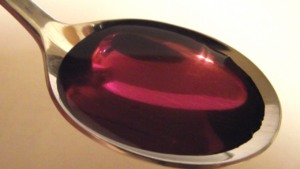Cognitive-behavioral therapy (CBT) is frequently included in treatment for substance or alcohol use disorders. This approach to therapy provides several benefits without requiring rehab patients to spend session after session discussing their past or rehashing painful experiences they have already resolved.
Call The Bluffs today at 850.374.5331 for more information about our cognitive-behavioral therapy program.
What Is Cognitive-Behavioral Therapy?
The basis for cognitive-behavioral therapy is that every person is responsible for their own behavior. In other words, thoughts affect feelings and decision-making, not other people, events, or even substances.
Patients learn that they may not be able to control every circumstance in their lives. However, they can control how they react to them. CBT patients can change their behavior by changing negative or destructive ways of thinking.
Through “homework” and exercises, patients then develop a new set of coping skills that helps them change their old ways of thinking. In essence, the goal of CBT is that patients become their own therapists, fully empowered to cope with any situation based on their own abilities.
Unlike traditional talk therapy, CBT is considered to be a “fast” approach. Patients may attend as few as 12 weekly sessions and rarely more than 20. Cognitive-behavioral therapy is not effective for every type of mental health disorder, but it has been found highly effective for treating addiction.
Benefits of CBT
The most well-known benefit of CBT is its relatively fast results. However, there are many more benefits of cognitive-behavioral therapy to consider. To start, CBT helps with a range of psychological disorders, including:
- Anxiety
- Depression
- Obsessive-compulsive disorder
- Eating disorder
- Post-traumatic stress disorder
- Relationship issues
- Grief
- Stress management
It’s not unusual for people struggling with addiction disorders to also experience one or more of the above issues. Therefore, cognitive-behavioral therapy may be especially helpful for those suffering from co-occurring disorders.
3 Major Benefits of CBT for Addiction Recovery
CBT helps patients cultivate a more positive outlook on life and themselves. Other benefits that are specifically useful to addiction recovery patients are listed below.
1. Backed by Research
CBT has been used for over six decades and has undergone many studies to verify its effectiveness. In fact, it’s effective for treating a variety of mental health concerns, including substance or alcohol use disorders.
Patients who include CBT as part of their overall treatment plan can rest assured the approach has been scientifically studied and recommended.
2. Prevents Relapse
People in recovery may continue to deal with triggers for the rest of their lives. Cognitive behavioral therapy teaches skills that help people remain calm and clearheaded when triggers arise.
Patients who have undergone CBT are better able to see potential stressors before they become full-blown problems. They can apply the skills they’ve learned to prevent themselves from relapsing or giving in to other self-destructive habits for improved long-term mental health.
3. More Positive Outlook
It’s common for people with addiction disorders to have some type of trauma in their past. If they didn’t experience trauma during childhood, they might have participated in, witnessed, or been victims of traumatic events related to drug or alcohol use. Recovering from emotional wounds is a key part of addiction recovery.
One of the greatest benefits of cognitive-behavioral therapy is that it helps patients overcome feelings of anger, fear, and hopelessness. Viewing yourself and your future in a positive light helps build a stronger foundation for long-lasting recovery.
Experience the Benefits of CBT at The Bluffs
At The Bluffs, we believe the road to recovery is different for every patient. That’s why we provide CBT and a variety of other therapies in our addiction treatment programs. For more information about cognitive-behavioral therapy and the benefits of CBT for addiction recovery, call The Bluffs today at 850.374.5331.







